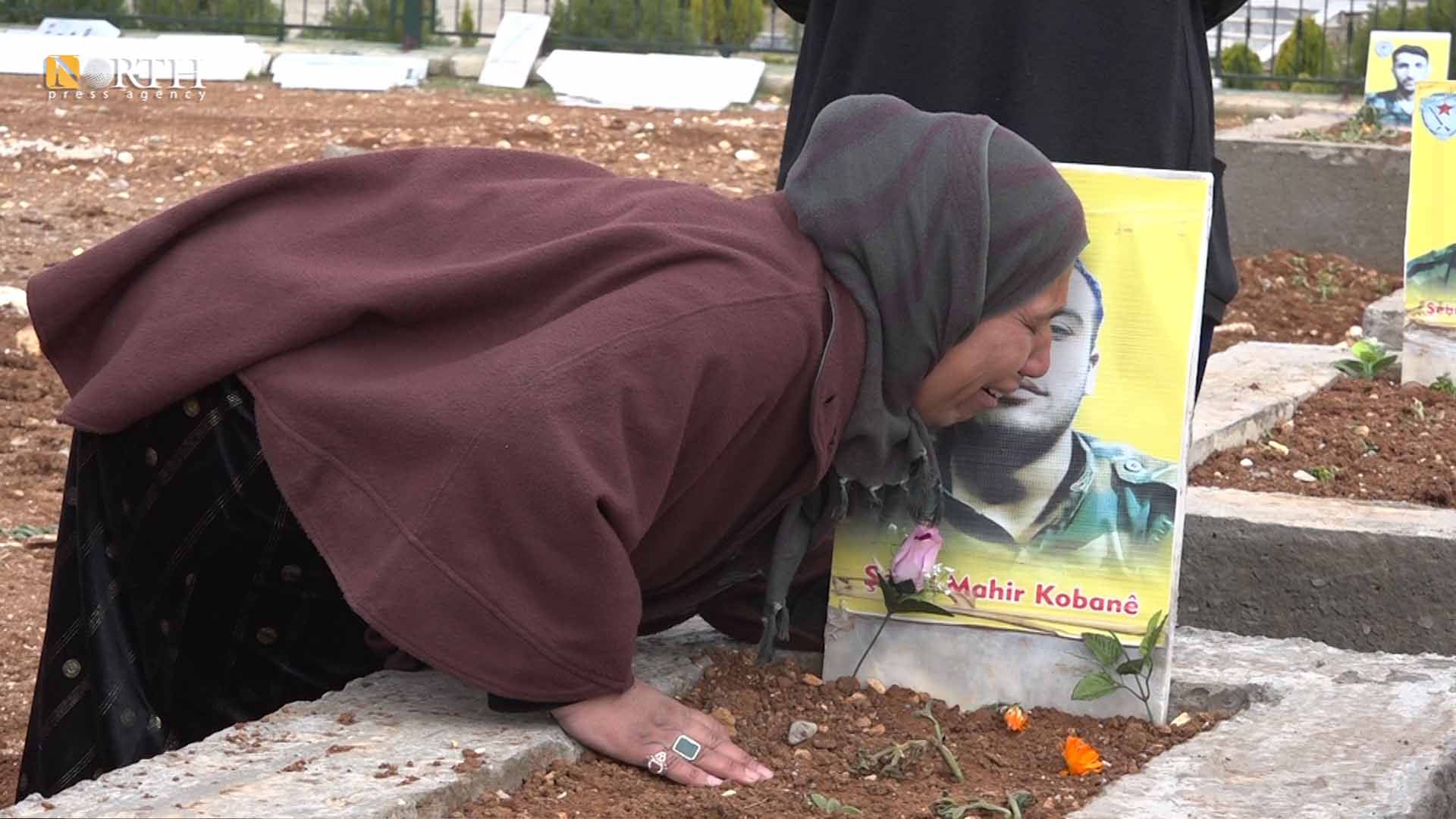Woman from Syria’s Kobani tells tragic stories with ISIS
KOBANI, Syria (North Press) – In a modest house in a neighborhood east of Kobani city, north Syria, Jamila Ibrahim hangs a picture of her youngest son against a walls and does not stop looking at it, trying to console herself and overcome her grief, knowing that 120 other women have suffered from the same pain that day, which has become a painful memory for many.
“I wish he were alive,” says the grieving mother, unable to hold herself from crying.
January 20th wasn’t a normal day for the people of northeast Syria as the city of Hasakah, during night hours, was shaken by sounds of explosions took place on the outskirts of al-Sina’a prison, which had held thousands of Islamic State Organization (ISIS) members captured by the Syrian Democratic Forces (SDF).
ISIS sleeper cells attacked the prison in an attempt to free their inmates. Some of them fled while others deployed in the surrounding neighborhoods.
As a result, 10 days of deadly clashes took place in the neighborhoods until finally the SDF and the Internal Security Forces of North and East Syria (Asayish) backed by the US-led Global Coalition air support regained control.
However, taking back the prison claimed lives of 121 individuals, four of which were civilians, according to statistics announced by the SDF General Command.
In Dijla cemetery in Kobani, which contains thousands of bodies for fighters martyred in battles with ISIS, Ibrahim sits beside her son’s grave and mourns his death.
“We didn’t know that ISIS would go after us this far. We believed it was over,” Ibrahim said.
The beheaded son
Over seven months, Ibrahim used to wait every Friday evening to contact her son, who was performing his Self Defense Duty (compulsory service) in al-Sina’a prison in Hasakah.
Unfortunately, the phone did not ring that day, to be informed later after fourteen days of waiting that the body of her son and other martyrs were on their way to Kobani.
During her talk with North Press, the grieved mother was unable to describe the moment she received the news of Maher’s martyrdom.
“There is nothing more painful than to be informed of your own son’s death,” she said.
The 19-year-old son, Maher Bozan, still had five months to end his military service; his family was already planning to have a big party for that day. His mother was also seeking to get him married and make a big wedding in the middle of the city.
However, what he got instead was a funeral ceremony along with another 11 martyrs in the Dijla cemetery in Kobani.
Maher and other guys were in charge of making food for the ISIS detainees, but little did he know that he is going to be beheaded with the same tool he used to make them food with.
The mother described how she saw her son’s body while shedding tears, “At 8 AM I went to the hospital and saw the lines of martyrs, and there I saw my beheaded son. I couldn’t touch his face; he was beheaded.”
“No one was spared from ISIS in Kobani,” the mother said.
Ongoing concerns
In Kobani, the people suffered the woes of ISIS who committed massacres against them over the past years. The majority of the families lost one or more members by ISIS.
Seeking protection, Ibrahim’s family immigrated to Turkey in 2014 after ISIS launched a ground violent attack on Kobani with the aim to control it.
As a result, fierce battles erupted between the People’s Protection Units (YPG) and ISIS. Most of the city’s infrastructure were destroyed and ISIS was ousted from the city on January 26, 2015.
After a month, particularly on June 25, ISIS members entered Kobani from Turkey disguised as YPG members dressed in YPG’s costume.
The ISIS attackers shot civilians and Asayish members, claiming lives of 253 people, most of whom were women and children, according to some civil rights reports.
The incident [ISIS attack] is known as “the June massacre”.
After the end of these events, Ibrahim’s family returned to their hometown, but in early 2016 she was startled again as her husband got killed by an ISIS-ERW (Explosive remnants of war).
The mother occasionally visits the cemetery to spend hours beside her son’s grave and always starts crying until she go home.
Ibrahim, a mother of seven children, tries to stay strong and overcome her wounds despite the difficulty of doing so, but she doesn’t hide her fears of other possible ISIS massacres even though they’re prisoned.

